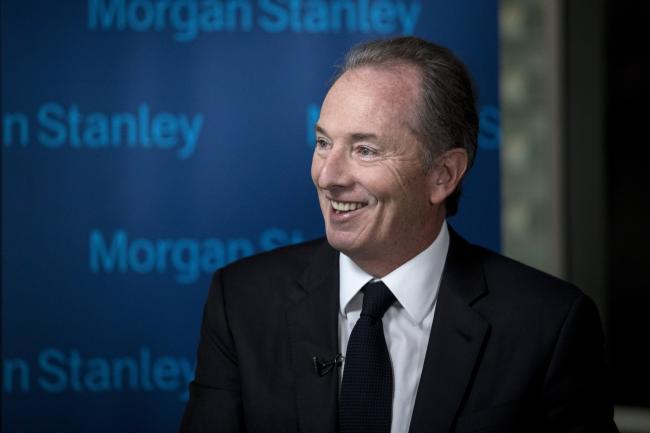(Bloomberg) -- Morgan Stanley’s James Gorman isn’t expecting a full-blown trade war between the U.S. and China, though deepening tensions mean negotiations need to get back on track.
“Do I think as a betting man this is going to evolve into a full trade war? No I don’t. There is too much self interest in keeping this on the rails,” the bank’s chairman and chief executive officer Gorman told Bloomberg Television’s Tom Mackenzie.
“I’m not sure about the exact timing of when we need some form of resolution,” he said. “Clearly the negotiators need to come to the table and figure this out. Not everything -- that will take decades -- but we need to get the train back on the tracks.”
Escalating U.S.-China trade tensions and faltering global growth have seen U.S. 10-year yields tumble and the gap between 3-month and 10-year yields -- a commonly watched recession indicator -- move to levels last seen in 2007.
Describing the inverted yield curve as concerning given its role as a predictor of recessions, Gorman said he doesn’t see conditions yet for the Federal Reserve to lower interest rates.
“The Fed is being decidedly neutral at the moment, which I personally feel is the prudent thing to do,” he said. “To cut rates ahead of hard evidence that the recession is really coming is using some of your firepower, and they don’t have a lot of firepower.”
On China, Gorman played down concerns over a slowdown and said he’s content with growth around 6% given the economy’s overall size. A Bloomberg Economics gauge aggregating the earliest available indicators of business conditions and market sentiment suggests the nation’s economy slowed again this month.
“China has enormous reserves, enormous resources and their willingness to act is one of the benefits of a planned economy,” he said.
